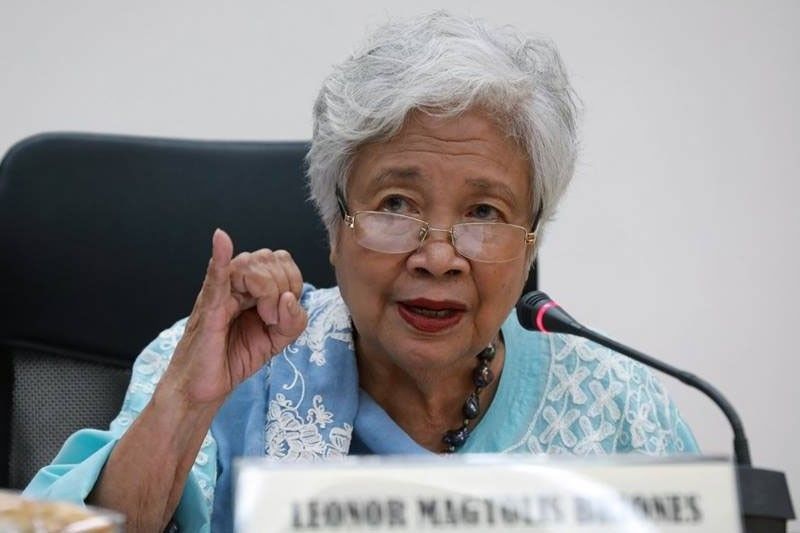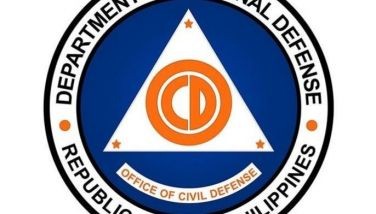K-12 not to blame for Pinoys’ poor test score – DepEd

MANILA, Philippines — The poor performance of Filipino students in reading comprehension, science and mathematics in a recent international student assessment is not due to the K-12 program, Education Secretary Leonor Briones said.
Briones, in an interview with “The Chiefs” aired on Cignal TV’s One News on Thursday night, added that it is too early to assess the impact of the senior high school program since it has only been implemented for three years.
“K plus 12 needs to be reviewed, but it is not the cause of the low ranking,” Briones said, referring to the reform program that added two years to basic education in the country.
However, she also stressed the need to implement an education reform program to catch up with the fast-changing world, particularly on
developments in new technology.
Results of the 2018 Program for International Student Assessment (PISA) showed Filipino students aged 15 years old lagging behind their counterparts in reading comprehension, science and mathematics.
The Philippines ranked lowest in reading comprehension and second lowest in science and mathematics out of the 79 countries that participated in the international assessment. Filipino students scored an average of 340 in reading, 353 in mathematics and 357 in science – all below the minimum proficiency level of at least 407, 420 and 410, respectively.
The results also showed that only one out of five Filipino students achieved the minimum proficiency level in the three domains. Many of these students are in private schools and in urban areas. PISA also revealed that those who are in senior high school performed better than those in junior high school.
Briones earlier said that she was not surprised with the results, noting that they have expected the assessment to reflect the performance of Filipino students in the National Achievement Test.
“The system of education which provides for 10 years was set up in 1940, which is the year that I was born. For 79 years, our basic education was 10 years,” she added.
The Department of Education (DepEd) said the participation of the country in PISA, the first time since the start of the triennial student assessment in 2000, is part of the quality basic education reform plan and a step toward globalizing the quality of Philippine basic education.
“By participating in PISA, we will be able to establish our baseline in relation to global standards and benchmark the effectiveness of our reforms moving forward. The PISA results, along with our own assessments and studies, will aid in policy formulation, planning and programming,” said the DepEd.
It added that with the PISA results reflecting the learners’ performance in the National Achievement Test, DepEd recognizes the urgency of addressing issues and gaps in attaining quality basic education in the Philippines.
The DepEd said it will lead a national effort for quality basic education through its newly launched initiative Sulong EduKalidad, which focuses on curriculum review, improvement of learning facilities, upgrading skills of teachers and school heads and engagement of different sectors.
The agency has committed to push for reforms to ensure quality basic education in the country.
“We always remind ourselves that our constitutional mandate is to provide every Filipino not only access to education but to basic quality education. We have realized that we are facing the reality that we still have much to do in responding to the constitutional mandate as far as quality education is concerned,” said Briones.
Quezon City 2nd district Rep. Precious Hipolito Castelo yesterday proposed a congressional investigation on the country’s education system following its low global ranking in PISA if only to pinpoint the loopholes that need to be plugged.
“We should pay attention to what the results of the PISA say. For me, they are indicative that our children are not prepared for tomorrow,” she said.
The lawmaker suggested that the probe should be conducted “in a manner that encourages synergy in identifying the problems and solutions.”
Sen. Sherwin Gatchalian believes that institutionalizing the Alternative Learning System (ALS), DepEd’s parallel learning system to the existing formal education system, might help as this will be able to reach out to 24 million Filipino adults, aged 15 and above, who have not completed basic education.
Based on DepEd’s data, there are 2,025,167 enrolled learners between 2016 to 2018 but only 1,329,667 learners were able to complete the program.
Sen. Francis Pangilinan attributed the low ranking of the Philippines in the PISA to hunger among Filipino children, a point that Health Secretary Francisco Duque III agreed with.
“If a child is hungry, how do we expect him or her to study well?” Pangilinan said, noting that hunger occurs mostly in the agriculture and fishing sectors where 70 percent of workers are poor.
Duque also criticized the excessive use of electronic devices among the young, saying these could gravely affect a child’s intellectual development as it lessens the time spent for studying. – With Edu Punay, Paolo Romero, Sheila Crisostomo
- Latest
- Trending


























